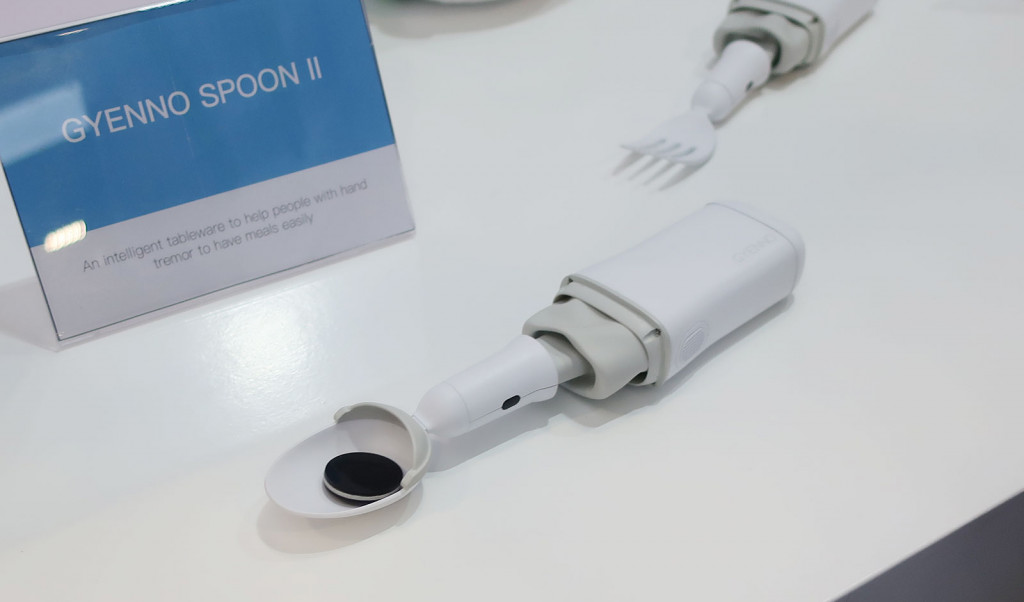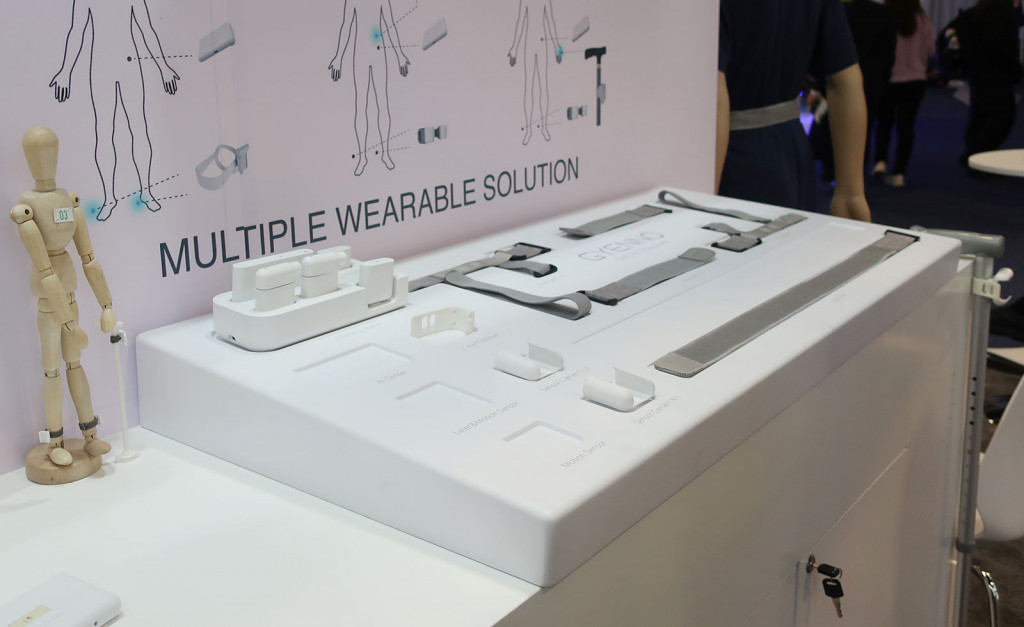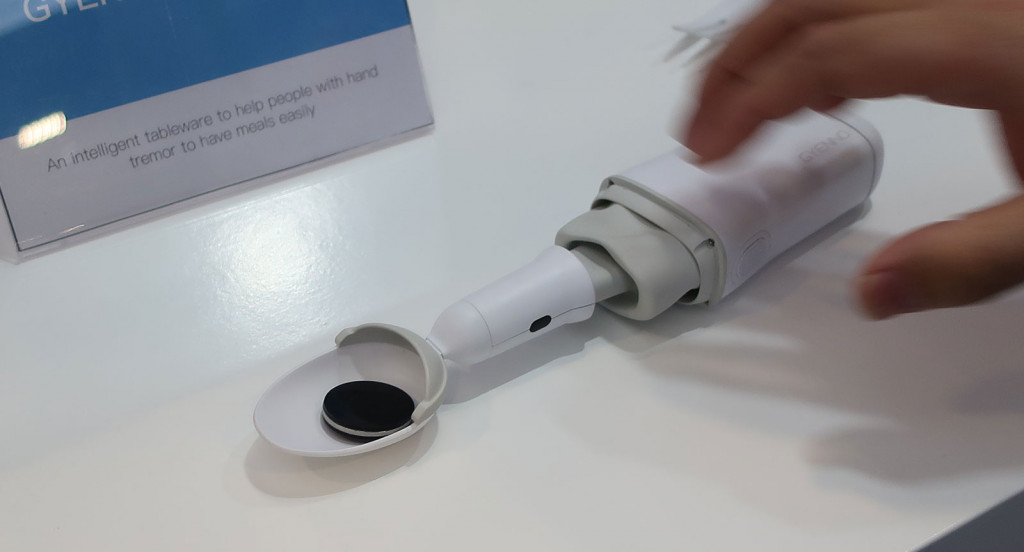Neurological conditions like Parkinson’s cause a dramatic shift to the lives of people it touches, but at least one gadget we saw at CES has the power to help return a sense of normality.
Medical technology was one of the big deals at CES, and while Nokia’s sleep gadget managed to impress with a way to connect your sleeping patterns with the smart home, we found ourselves drawn to something else.
It was from a company called Gyenno, and the technology wasn’t your typical assortment of consumer-friendly fare designed to help you talk to Google or provide better WiFi or sound your to your home.
Rather, it was designed to help people suffering from Parkinson’s, returning a touch of dignity to their lives and making it possible for them to hold cutlery like a fork or a spoon, returning the modicum of normality when eating most of us take for granted.
The second-generation Gyenno Spoon (because that’s apparently where we are) almost feels like a form of camera stabiliser encased in a handle designed to take the tremors exhibited by people whose hands shake uncontrollably, with a motor and algorithm interpreting the information pushed out by tremors and controlling a mechanism to hold the spoon in place as much as could be.
It’s rather interesting to watch, and is very reminiscent of what presently exists for cameras, but developed in a way that actually has the power to change someone’s life, not just make entertainment easier on the eyes overall.
Gyenno’s Spoon II also comes with a neat trick: it’s also a fork. Take off the spoon, plug in the fork, and the system becomes a fork for pasta and noodles, not only stabilising the system, but also twirling in place so people eating can pick up the food from the plate more easily and by themselves.
The CES-introduced digital cutlery also includes WiFi and a sensor to track what’s going on, while the entire thing runs on battery, making it just that much easier to integrate and become more helpful, with the data useful for doctors treating conditions.
Gyenno’s efforts in medical technology aren’t entirely limited to food, and the company showed us a system that also had the potential to help people not fall, a problem known as “gait freeze” that can affect Parkinson’s patients and stop them from walking, from taking that step forward, and thus falling.
Called “Gait Aid”, Gyenno’s system is a three part solution monitoring the ankles and working with a laser guide aimed at the ground and worn at the waist, using an algorithmic approach and sensors to track when a person might have this issue, identifying the problem and learning over time.
It’s just one of the medical devices we saw at CES 2018, and showed how companies are beginning to take advantage of artificial intelligence and learning systems to make lives better.
Leigh :) Stark travelled to CES in Las Vegas as a guest of Dell.









